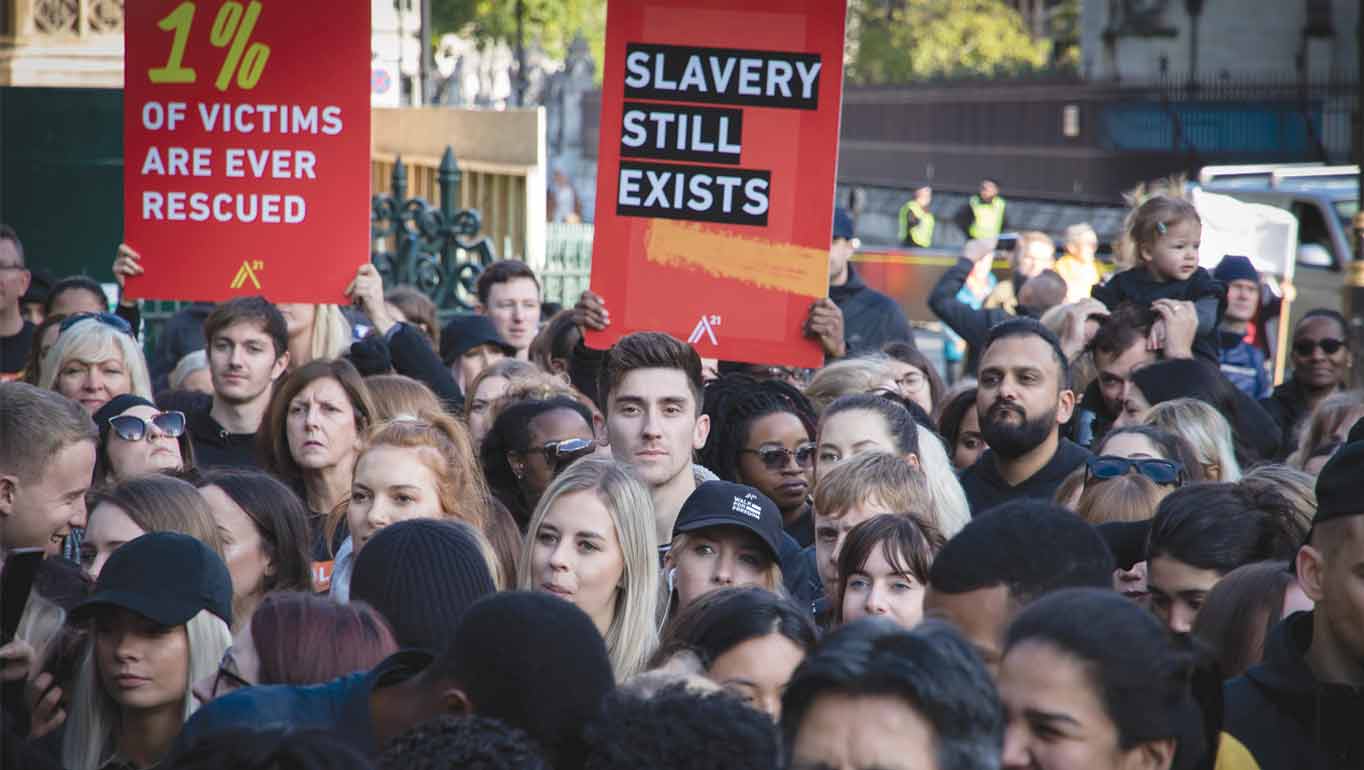As one of the world’s leading legal practitioners in the fight against modern-day slavery and human traffficking, I understand the importance of this issue to recognizing the victims of the transatlantic slave trade. In doing so, I wish also to honor all the victims of slavery, past and present, worldwide.
The transatlantic slave trade lasted for over 400 years. It is estimated that between 12-15 million African people, including children, men and women, perhaps even more, were violently and forcibly taken from their homes in Africa to be sold as slaves for their labor. Hundreds, if not thousands, of ships were deployed to take them in chains to European colonies and plantations in the Americas where they were harmed, humiliated and degraded in the course of being used as slaves in the production of hugely profitable goods such as tobacco, cotton and sugar.
The date to mark International Day for the Remembrance of the Slave Trade and its Abolition is significant because, during the night of August 22 to August 23, 1791, on the island of Saint Domingue, now Haiti, an uprising began which set in place events that would lead to the abolition of the transatlantic slave trade. This International Day is intended to inscribe the tragedy of the slave trade in the memory of all people affected. Today we honor all those who lost their lives and their liberty as victims of this horrific human trade.
But slavery hasn’t stopped.
Devastatingly, in today’s world, 49.6 million people, including children, are living in modern slavery, including 28 million people in forced labor, of which 23% are in commercial sexual exploitation and 22 million people who are trapped in enforced marriage. In our modern world where every country has criminalized the practice of owning people as slaves, it is hard to close our eyes to these figures and to accept that, across the world, millions of people are being treated by others as if they were their property or as slaves.
Human trafficking is a modern legal form of the traditional concept of slavery, defined by the UN in 2000 and enacted 20 years ago in 2003. It relates to the manner in which a person is brought into a condition of exploitation, requiring states to criminalize offenders involved in the recruitment, transportation, transfer, harboring or receipt of a person for the purpose of exploitation. In the case of adults, one of the so-called ‘means’ must have been used by the trafficker, such as deception, coercion, force or threat or abuse of the victim’s position of vulnerability. What is important to always remember is that a trafficking victim’s consent is always irrelevant in the case of a child, and is irrelevant in the case of adult victims where any of those trafficking methods have been used: a victim cannot give their free will or consent to what happened to them at the hands of the trafficker when they were entrapped by them.
Sadly, the UN has recently confirmed that the number of successful prosecutions of traffickers has been decreasing worldwide since 2017, and with the Covid-19 epidemic, the numbers of convicted traffickers have fallen again by a staggering 27%.
Is there a link anywhere in this?
The non-punishment principle exists in many international laws and policies on trafficking and forced labor to require states to protect victims from being prosecuted or punished for any unlawful acts they may have committed as a direct result of their trafficking or forced labor. It has been a privilege to have worked with the current and previous United Nations Special Rapporteurs on Trafficking in Persons in their mission to help strengthen states’ awareness of their obligations to protect victims from criminalization and other forms of punishment. However, states often don’t respect this critical obligation and in my legal practice and as an expert, I have often wryly observed that it is part of traffickers and enslavers’ business plans to rely on states arresting victims, rather than identifying them as victims and witnesses of crimes and investigating who was responsible for their trafficking or enslavement.
Unfortunately, the number of people in modern slavery has risen significantly in recent years. In 2021, 10 million more people were estimated to be in modern slavery compared to 2016.
What do we need?
We need leadership by states, and between states, to recognize the role of civil society organizations that care for victims. We need formal victim identification mechanisms to be introduced in every UN Member State; the political will by states to investigate all forms of trafficking and exploitation, and not just some. We need effective schemes to protect victims and diligent efforts to bring perpetrators to justice. We need states to give victims access to lawyers who can advise them, including to claim compensation, whether directly from perpetrators or from state compensation funds, and we need to install safe procedures that will help victims of modern-day slavery to recover from what they have suffered without shame, fear, or punishment by states, including by arrest, imprisonment or deportation.
Our promise to do this must be reignited today, as we commemorate all those whose liberty and lives were lost in the transatlantic slave trade. Slavery, forced labor and human trafficking, in all its forms, continue all around the globe, and with lax attention paid by states towards victims’ rights and needs and with data showing increasing levels of impunity for perpetrators, the numbers will only continue to rise. Our work here, staggering as it may sometimes feel with the enormity of the task ahead, is still not done.



